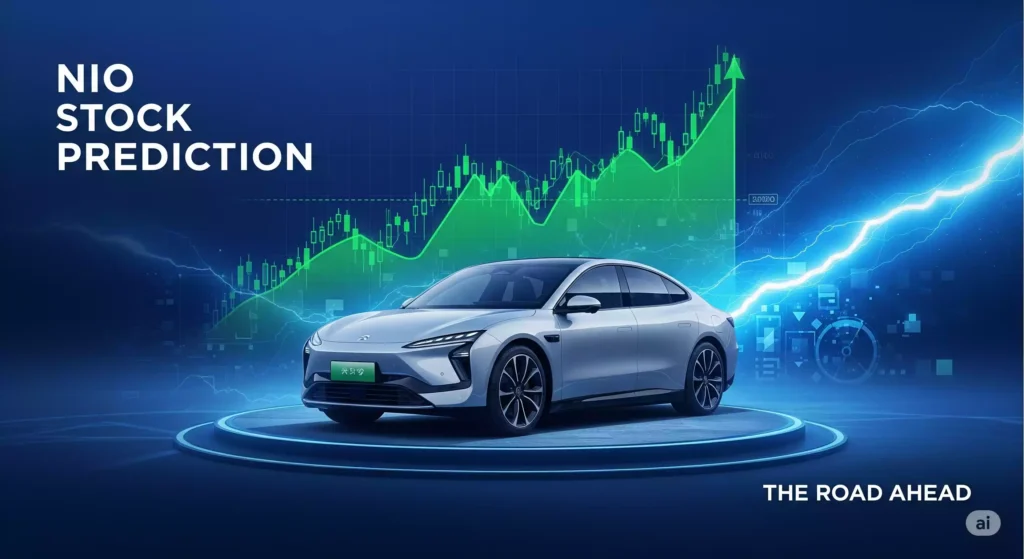The world of stock trading, especially in the fast-paced electric vehicle (EV) sector, is a dynamic and often unpredictable environment. Investors, from seasoned professionals to curious newcomers, are always looking for an edge, and a common question is, “What will NIO’s stock do tomorrow?”
While it’s impossible to give a definitive “buy” or “sell” signal for a single trading day, we can analyze the key factors that influence NIO’s stock price. Understanding these drivers is far more valuable than a speculative prediction and can help you make a more informed decision for your investment journey.
Understanding NIO’s Market Position
NIO Inc. has carved out a niche in the premium segment of the Chinese EV market, a space where it competes with both domestic rivals like XPeng and Li Auto and global giant Tesla. The company’s unique value propositions, such as its innovative battery-swapping technology, have differentiated it from the competition.
However, like any growth-oriented company, NIO’s stock is highly sensitive to a variety of factors. These can range from company-specific news to broader macroeconomic trends.
Key Factors Driving NIO’s Value
- Vehicle Deliveries and Sales: This is often the most significant short-term catalyst. Monthly and quarterly delivery numbers are a direct measure of demand. Strong delivery reports can cause the stock to rally, while a miss can lead to a sell-off. For instance, recent delivery numbers for its ONVO L90 model have been a major point of focus for investors.
- Financial Reports and Profitability: As a relatively young company, NIO has not yet achieved consistent profitability. Investors closely watch quarterly earnings reports for signs of improving margins, cost-cutting measures, and a path toward breaking even. The company has set a target to achieve breakeven in Q4 2025, and progress toward that goal will be a key driver of investor sentiment.
- Competition and Price Wars: The Chinese EV market is intensely competitive. Aggressive pricing strategies from rivals can put pressure on NIO’s margins and market share. The company’s ability to maintain its premium brand identity and adapt to a competitive landscape is crucial.
- Macroeconomic and Geopolitical Factors: Broader market conditions, such as interest rates, supply chain stability, and government policies (like EV subsidies or trade tensions), can have a profound impact on the stock. Positive developments can fuel optimism, while negative news can create headwinds.
- New Product Launches and Innovation: The introduction of new models, like the ONVO L60 or the flagship ET9, and advancements in battery technology or autonomous driving are key to maintaining a competitive edge and can generate significant investor interest.
What Analysts Are Saying
Analyst ratings and price targets can provide a snapshot of institutional sentiment. While they are not a guarantee, they reflect a consensus view based on in-depth research. It’s important to note that analyst ratings can vary widely and are often subject to change.
Recently, analysts have maintained a “Hold” consensus on NIO, with some upgrading their price targets, citing strong order numbers for new vehicles and the company’s efforts to reduce costs.
Navigating Short-Term Volatility
Predicting a stock’s price “tomorrow” is a high-risk endeavor. The stock market is influenced by real-time events, news, and trading volume that are impossible to forecast. A single headline—whether it’s a positive earnings beat or a new production bottleneck—can change the stock’s direction in an instant. For this reason, many successful investors advocate for a long-term perspective, focusing on the company’s fundamentals rather than daily fluctuations.
FAQs
Q1: Is NIO a good long-term investment?
NIO operates in a high-growth but highly competitive sector. Its long-term potential depends on its ability to achieve profitability, scale production, and innovate effectively. Investors should conduct thorough research and consider their own risk tolerance.
Q2: Where can I get real-time NIO stock news?
For the most up-to-date information, you should refer to reliable financial news sources, the company’s official investor relations website, and reputable financial data platforms.
Q3: Should I buy or sell NIO stock based on a one-day prediction?
No. Investing based on short-term predictions is speculative and can lead to significant losses. Focus on the company’s fundamentals and your long-term investment strategy.
Conclusion
While the allure of predicting “tomorrow’s” stock price is strong, a wise investor knows that true success comes from understanding the underlying factors that drive a company’s value. For NIO, its future is tied to its ability to successfully navigate a competitive market, manage costs, and deliver on its growth promises.
By focusing on these key drivers rather than daily forecasts, you can build a more resilient and informed investment portfolio. Remember, the market rewards research and patience.

